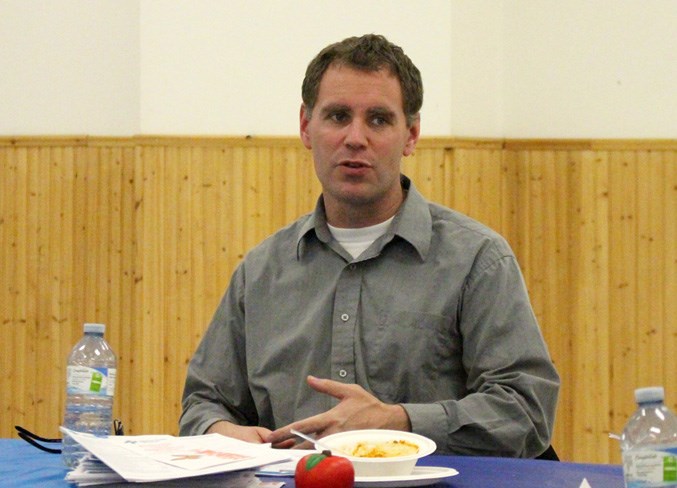Less than a year into offering residents treatment, the Bonnyville Opioid Dependency Clinic is pleased with their accomplishments so far.
Reggie Jackson, manager for addiction and mental health services in Bonnyville where the clinic is run through, said he’s seen significant improvement in those that have received treatment.
“We’ve had a lot of successes... I’m actually thinking of one in particular. He was struggling, he wasn’t lucid, and his thought process and everything was slow. (When) he went through the treatments, everything started to come back. All the lights were coming on, he’s processing quicker, and he’s starting to get his life back,” he recalled.
Since it opened in August 2018, 15 clients have received treatment through the Bonnyville Opioid Dependency Program.
Jackson presented an update on the clinic to the Lakeland Communities Health Advisory Council on Wednesday, March 13 during their meeting at the Elizabeth Métis Settlement.
The provincial government announced in June 2018 that an opioid dependency clinic would open in Bonnyville as part of a plan to tackle addiction across the province.
“The program was a direct response to the opioid crisis,” Jackson noted.
According to Jackson, other drugs are predominantly used in the region but opioids still have an effect.
“I would say meth right now is probably one of our higher substance use in the region, but that’s not to say opioids aren’t significantly impacting the region.”
For many, a dependency on opioids begins with a prescription to handle their pain that eventually gets out of control.
“That’s where some of the folks in our programs go through opioid dependence. We work closely with our physicians and try to support individuals who don’t necessarily understand that while it’s a prescription, they’re actually suffering from an addiction and that conversation can be very difficult,” detailed Jackson.
Lakeland Health Advisory Council member David Beale recalled a speaker saying the opioid crisis could be handled by addressing how doctors prescribe it.
“What I took away from that was (the presenter) said to address this it has to be at the prescription pad. That’s where it has to change,” he said.
Jackson agreed, and believes the program is helping with that in the area.
“Our staff work very closely with the patient, with the physician or any other providers around educating, helping them understand what problematic use is... The funny thing is it’s supposed to control pain, but prolonged use and misuse actually exasperates the pain and you get these phantom pains,” Jackson said.
The clinic is offered every Friday at the Bonnyville Provincial Building. One-on-one video meetings with addictions specialists based out of Calgary are offered along with medication-assisted treatments, such as methadone and Suboxone.
Patients can be referred to the program by their doctor or can drop into the clinic by their own accord.
Due to their location, Jackson noted they cover a vast area.
“They’ll come to Bonnyville, we’ll see them in our clinic, they’ll get assessed by our nurse, they’ll go to the hospital for urine samples, and that gets tested... Then, they’ll see their physicians to be assessed and start their treatments.”
For new clients to the program, the testing lets them know if what they’re buying on the streets has been laced with another drug. According to Jackson, some participants are shocked to learn they’re results tested positive for methamphetamine.



